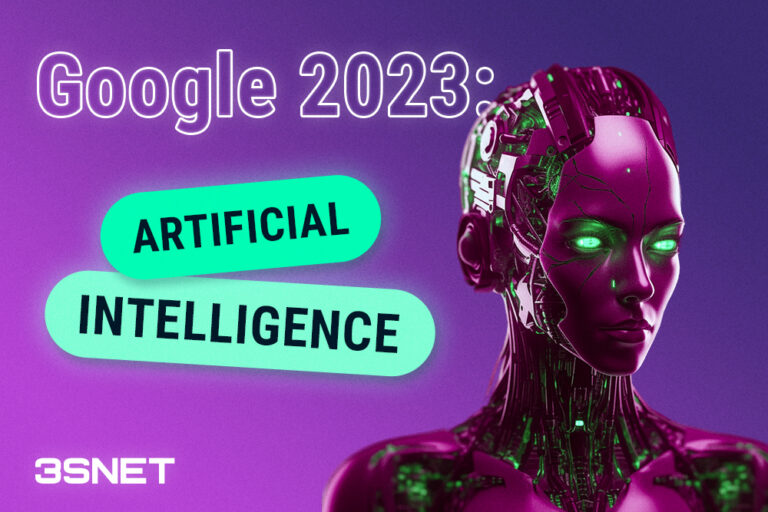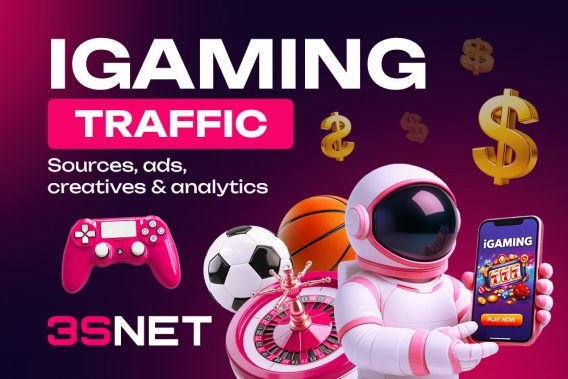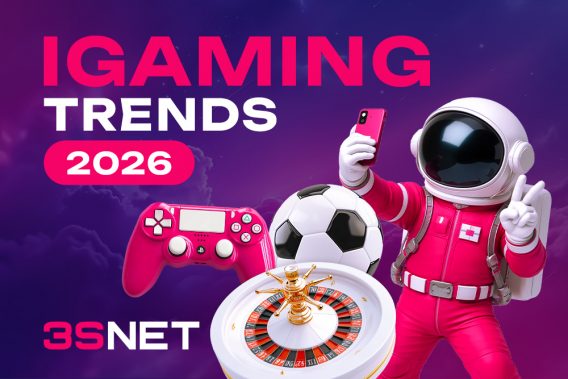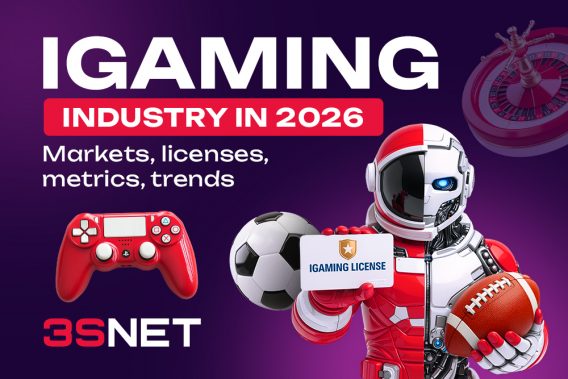
Publication date: 12 May 2023
Attention! New information has been added on 18 May 2023!
At the Google I/O conference on 10 May 2023, Google representatives revealed how the company’s various services will change in the near future.
The big news: a new artificial intelligence model will be added to search results, the browser, emails and messages as well as image processing. What exactly will change and what can we expect?
PaLM 2.0 is a multimodal artificial intelligence model developed by Google. The AI can process queries in 40 languages, including 20 programming languages. The neural network can understand text queries, translate into other languages and generate its own texts, create code, work with medical data (Med-PaLM 2 model) and help with security (Sec-PaLM). The Bard chatbot is based on this model (Find out on 3SNET, what AI chatbots are and how to work with them).
Google search results + Bard AI chatbot
A new search based on generative artificial intelligence (AI) will deliver information in a new format. Bard, a chatbot embedded in Google Search, will be able to provide answers to user queries by analyzing several sources (texts, images).
AI-based answers will be given first, at the very top of the results. Google will then output other features found by the search.
If the user chooses the new Search Generative Experience (SGE) feature, they will be able to see the links to the original source of the information.
Additionally, Google has clarified that advertising will remain an important part of web search. Under the new generative concept, ads will continue to be displayed separately, in special slots across the page.
Inside the search engine will appear “Google Perspectives”: under the product cards will be placed reviews and comments from real people. The filter will not show results by title, but based on user experience. The results will include various formats of videos, images and text on forms with links to third-party resources: Reddit, YouTube, social networks and other platforms.
Google Workspace Assistant + Duet AI platform
AI tools embedded in the Duet AI platform will assist with email, messaging and texting. The bot can write a letter on a given topic in the desired style, create a table or a presentation (with texts and images) at the request of the user.
- Gmail, “Docs” and “Tables” will have a function that helps you write texts. For the email service, a feature will be added to generate adequate contextual responses.
- An image creation by text request will become available for Slides.
- Google Docs will introduce automatic generation of articles on a given topic, as well as the correction of the finished text.
- The Sidekick service will parse the documents viewed by the user. The outcome will be visible in the sidebar.
How to improve a picture on Google using AI?
Google Photos + Magic Editor: the generative neural network Magic Editor can facilitate the production of creatives. The AI with “one button” knows how to improve the composition of the image, add brightness to colours, remove unwanted elements.
In addition, you can also use the exclusive Pixel feature introduced in the new Android 14. The AI will be able to generate various isometric wallpapers on text request.
Google Lens, a service for identifying objects in images, will help you come up with interesting captions for photos: a neural network will suggest what kind of comment can go with a photo.
PaLM 2 will also be introduced to help YouTube video creators. The AI will not only help generate video content, but also create titles and descriptions for the videos.
Google’s artificial intelligence and advertising
The AI model will help optimize costs in advertising, thereby increasing revenue and profitability for businesses. To achieve this, Google will implement a neural network in hundreds of services (Play Store, Gmail, Android Search and Maps, and others).
AI-powered helpdesk chatbots will be able to provide specific answers to advertisers’ queries as well as suggest an advertising plan depending on the customer’s needs.
Officially, all of Google’s new smart features can only be tried by US residents and only in English.
Many of the changes announced by Google are still in the development or testing stages. Nevertheless, they may (or may not?) affect SEO in the near future. Either way, the new search and retrieval systems will be a working tool for promotion and advertising.
Share it with your friends via favorite social media



























